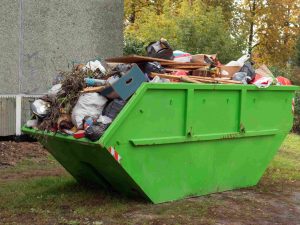10 Items You Should Never Put in a Skip Bin
Skip bins are invaluable for disposing of various types of waste efficiently. However, there are certain items that should never find their way into a skip bin due to safety, legal, or environmental concerns. Understanding what can and cannot be disposed of in a skip bin is crucial to avoid fines, hazards, and environmental damage. Here’s a comprehensive guide on items that should never go into a skip bin.
1. Chemicals and Hazardous Materials
Chemicals like paint, solvents, pesticides, and asbestos are highly hazardous. They can leak, mix with other waste, and pose serious health risks to waste handlers and the environment. Dispose of these items through designated hazardous waste disposal services.
2. Electronics and Electrical Waste
Items such as TVs, computers, batteries, and appliances contain metals and chemicals that can be harmful if not recycled properly. Take these items to e-waste recycling centers to ensure components are salvaged or disposed of safely.
3. Batteries
Both single-use and rechargeable batteries contain toxic materials like lead and mercury. These substances can contaminate soil and groundwater if not disposed of correctly. Many stores offer battery recycling programs for safe disposal.

10 Items You Should Never Put in a Skip Bin
4. Medical Waste
Used syringes, bandages, and medications must never be disposed of in regular waste bins. They can spread infections and pose health risks. Medical waste should be disposed of through medical waste management companies.
5. Flammable Liquids
Materials like gasoline, oil, and propane can ignite easily and cause fires or explosions in skip bins. These liquids require special disposal methods to prevent environmental damage and ensure safety. https://woodysskips.com.au/skip-bins-tweed-heads/
6. Asbestos
Asbestos fibers are carcinogenic when inhaled and must be handled with extreme care. Proper removal and disposal by licensed professionals are required to prevent exposure and comply with legal regulations.
7. Heavy Items
Avoid placing extremely heavy items like concrete blocks, large tree trunks, or car parts in skip bins. They can exceed weight limits, damage the bin, or pose risks during transportation. Dispose of these items through appropriate means.
8. Food Waste
Organic materials can decompose rapidly and attract pests if left in skip bins. Dispose of food waste in compost bins or through municipal organic waste collection programs.
9. Tires
Old tires take up significant space in skip bins and are difficult to dispose of properly. Tire recycling facilities can process them to create useful products like rubber mulch or asphalt.
10. Illegal Items
Never dispose of prohibited or illegal items in skip bins, such as firearms, explosives, or chemicals restricted by law. Doing so can lead to legal consequences and endanger waste management personnel.
By adhering to these guidelines, you can ensure that your waste disposal practices are safe, environmentally friendly, and compliant with regulations. Always consult with your skip bin provider or local authorities if you are unsure about disposing of specific items.
